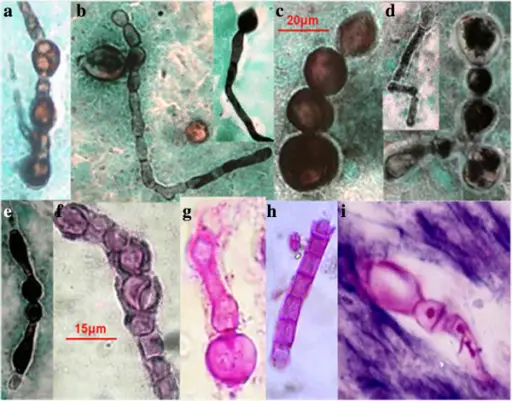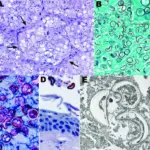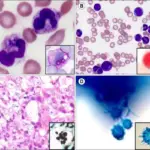Coccidioides Fungal Infection is an infection caused by the fungus Coccidioides.
What is the Pathology of Coccidioides Fungal Infection?
The pathology of coccidioides fungal infection is:
-Etiology: The cause of coccidioides fungal infection is inhaling spore-laden dust.
-Genes involved: Not applicable.
-Pathogenesis: The sequence of events that lead to coccidioides fungal infection are: through inhalation of fungal spores, it leads to primary pulmonary infection and then to hematogenous dissemination to other sites.
-Morphology: The morphology associated with coccidioides fungal infection shows morphological variation in its mycelial and parasitic forms. It exists in the desert soil as a mold. As the cells degenerate, barrel-shaped arthroconidia break off from the hyphae and become airborne.
-Histology: The histology associated with coccidioides fungal infection shows massive pseudoepitheliomatous hyperplasia and granulomatous dermal inflammation.
How does Coccidiomyces Fungal Infection Present?
Patients with coccidioides fungal infection typically are all genders of all ages. The symptoms, features, and clinical findings associated with coccidioides fungal infection include muscle aches or joint pain, rash, headache, night sweats, cough, and fatigue.
How is Coccidiomyces Fungal Infection Diagnosed?
Coccidioides fungal infection is diagnosed by chest x-ray, CT scans, and biopsy.
How is Coccidiomyces Fungal Infection Treated?
Coccidioides fungal infection is treated by antifungal medication such as fluconazole.
What is the Prognosis of Coccidioides Fungal Infection?
The prognosis of coccidioides fungal infection is poor. The chronic form of the infection can cause lung abscesses and scarring in your lungs.



